Top 10 Greatest Philosophers of All Time
 Socrates, born in Athens around 469 B.C., is revered as one of the founders of Western philosophy. He was known for his Socratic method, a form of inquiry used to stimulate critical thinking and to expose the contradictions in someone's beliefs. Unfortunately, Socrates himself left no writings behind. Most of our understanding of him and his teachings come from the accounts of his students, notably Plato. Notably, he was tried and sentenced to death for corrupting the youth and for impiety against the Athenian gods in 399 B.C.
Socrates, born in Athens around 469 B.C., is revered as one of the founders of Western philosophy. He was known for his Socratic method, a form of inquiry used to stimulate critical thinking and to expose the contradictions in someone's beliefs. Unfortunately, Socrates himself left no writings behind. Most of our understanding of him and his teachings come from the accounts of his students, notably Plato. Notably, he was tried and sentenced to death for corrupting the youth and for impiety against the Athenian gods in 399 B.C. Socrates, and not Plato, set up what philosophy as a whole became. The elenchus and the aporia remain two philosophical tools that a philosopher gets trained in, even still.
Socrates never wrote anything. All the Socratic theories are, in fact, the theories of his pupil Plato.
For someone who may not have even been real, he sure was influential.
 Karl Marx, born in Trier, Germany, in 1818, was a philosopher, sociologist, economist, and revolutionary socialist. His collaboration with Friedrich Engels led to the publication of the 'Communist Manifesto' in 1848, a foundational text for the communist movement. His later work, 'Das Kapital', critiqued political economy and proposed his theories on capitalism, exploitation, and class struggle. Marx's ideas have had a monumental impact on various disciplines, inciting intense debate and leading to the establishment of Marxist political regimes.
Karl Marx, born in Trier, Germany, in 1818, was a philosopher, sociologist, economist, and revolutionary socialist. His collaboration with Friedrich Engels led to the publication of the 'Communist Manifesto' in 1848, a foundational text for the communist movement. His later work, 'Das Kapital', critiqued political economy and proposed his theories on capitalism, exploitation, and class struggle. Marx's ideas have had a monumental impact on various disciplines, inciting intense debate and leading to the establishment of Marxist political regimes. Karl Marx's philosophy is based on dialectic materialism, as opposed to Hegel's dialectic absolute idealism. According to dialectic materialism, there are conflicts between economic classes. After feudalism, we entered a new thesis: the industrial employers of capitalism. This new thesis of capitalism will generate the antithesis of the proletarian or working class. The synthesis that will come out of this conflict is, in Karl Marx's view, socialism.
To stop the conflicts that capitalism is generating, it is necessary to maintain the productivity of the economy through socialism. This is because capitalism will strive only to make profits and therefore take advantage of the working class to produce more and more things that society really doesn't need. The inequality between the two classes will grow until there are only rich and poor classes. Capitalism vs. work. Only socialism, which will maintain equality, can stop the inhumane conditions that will arise if capitalism can do whatever it wants to do.
 Aristotle, born in 384 B.C. in Stagira, Greece, is one of the most influential figures in Western philosophy and science. He studied under Plato at the Academy before becoming the tutor of Alexander the Great. His comprehensive system of philosophy, which encompassed morality, aesthetics, logic, science, politics, and metaphysics, has been the framework upon which many Western philosophers have based their own philosophies. Works like 'Nicomachean Ethics', 'Poetics', and 'Metaphysics' are still closely studied and widely taught.
Aristotle, born in 384 B.C. in Stagira, Greece, is one of the most influential figures in Western philosophy and science. He studied under Plato at the Academy before becoming the tutor of Alexander the Great. His comprehensive system of philosophy, which encompassed morality, aesthetics, logic, science, politics, and metaphysics, has been the framework upon which many Western philosophers have based their own philosophies. Works like 'Nicomachean Ethics', 'Poetics', and 'Metaphysics' are still closely studied and widely taught. He introduced a distinct idea that philosophy could not be purely speculative. This idea would go on to influence rationalism, nihilism, atheism, and many more schools of thought.
 Friedrich Nietzsche, the German philosopher and cultural critic, was born in 1844 and was known for his bold and provocative ideas. His works, such as 'Thus Spoke Zarathustra' and 'Beyond Good and Evil', challenge traditional notions of morality and truth. Nietzsche introduced the concept of 'Ubermensch' or 'Overman' and proclaimed the 'death of God', emphasizing the individual's creative potential and undermining the traditional religious and moral values of his time.
Friedrich Nietzsche, the German philosopher and cultural critic, was born in 1844 and was known for his bold and provocative ideas. His works, such as 'Thus Spoke Zarathustra' and 'Beyond Good and Evil', challenge traditional notions of morality and truth. Nietzsche introduced the concept of 'Ubermensch' or 'Overman' and proclaimed the 'death of God', emphasizing the individual's creative potential and undermining the traditional religious and moral values of his time. Nietzsche is the ultimate in deconstruction. As a historian, Nietzsche studied the flow and logic of history and analyzed it through philosophy. As such, he showed that no truths exist. All truths are situated in whatever historical context one lives in.
Nietzsche, the father of our era's philosophy, is someone everyone should at least try to read. "Thus Spoke Zarathustra" combines philosophy and poetry by the hand of Nietzsche. It's a point of no return.
Amazing ideas. He deserves the number 1 spot more than anyone for the controversial things he said. He was also the main inspiration for existentialism.
 Born in Athens around 428/427 B.C., Plato was a student of Socrates and later, the teacher of Aristotle. He founded the Academy in Athens, widely considered the first institution of higher learning in the Western world. His dialogues, where he often used Socrates as a character, serve as some of the most enduring records of classical Greek philosophy. Notably, his allegory of the cave explores the difference between perceived reality and the true form of things.
Born in Athens around 428/427 B.C., Plato was a student of Socrates and later, the teacher of Aristotle. He founded the Academy in Athens, widely considered the first institution of higher learning in the Western world. His dialogues, where he often used Socrates as a character, serve as some of the most enduring records of classical Greek philosophy. Notably, his allegory of the cave explores the difference between perceived reality and the true form of things. Although Plato is not my favorite philosopher (because his writings lack the qualities that a philosopher should pursue most of all: clarity and being concise), hardly any of his ideas can be considered indisputable. In terms of influence on the whole subject of philosophy, he has no match.
The modern philosophical disciplines, such as ontology, epistemology, and ethics, can be traced back to his dialogues. Virtually any philosophical problem that philosophers have been trying to solve for the last two thousand years was initially formulated by Plato.
 René Descartes, born in France in 1596, is often credited as the father of modern Western philosophy. His famous dictum, "Cogito, ergo sum" ("I think, therefore I am"), reflects his foundational position in epistemology. He sought to build a basis for scientific method grounded in reason and clear, distinct ideas. His work, 'Meditations on First Philosophy', continues to be a standard text in philosophy education.
René Descartes, born in France in 1596, is often credited as the father of modern Western philosophy. His famous dictum, "Cogito, ergo sum" ("I think, therefore I am"), reflects his foundational position in epistemology. He sought to build a basis for scientific method grounded in reason and clear, distinct ideas. His work, 'Meditations on First Philosophy', continues to be a standard text in philosophy education. After analyzing every radical doubt, he came to the conclusion that one thing is certain: that he exists. His saying "I think, therefore I am" was true even if he was dreaming, even when his senses played tricks on his mind. It was even necessarily true because it's impossible to deny it without being in contradiction with yourself.
If you're saying that you have doubts about your existence, it proves, in fact, that you exist. Otherwise, you wouldn't have a doubt to begin with. You also can't ignore the existence of your thoughts because it's with your thinking that you're able to have doubts. Therefore, thinking and I (my existence) are the same. A proven self-identity that has a body and mind.
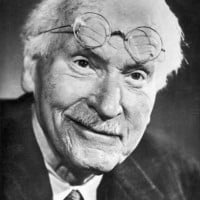 Carl Jung, a Swiss psychiatrist and psychoanalyst, was born in 1875. Known as the founder of analytical psychology, he proposed and developed the concepts of the collective unconscious, archetypes, and introversion and extroversion. Jung's profound insights into the human psyche, elaborated in works like 'Psychological Types' and 'Man and His Symbols', have made him one of the most influential figures in the field of psychology.
Carl Jung, a Swiss psychiatrist and psychoanalyst, was born in 1875. Known as the founder of analytical psychology, he proposed and developed the concepts of the collective unconscious, archetypes, and introversion and extroversion. Jung's profound insights into the human psyche, elaborated in works like 'Psychological Types' and 'Man and His Symbols', have made him one of the most influential figures in the field of psychology.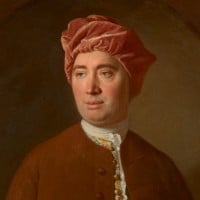 David Hume, born in 1711 in Edinburgh, Scotland, was a prominent figure in the Scottish Enlightenment. Known for his empiricism, skepticism, and naturalism, Hume's major works like 'A Treatise of Human Nature' and 'An Enquiry Concerning Human Understanding' explore the limits of human knowledge. His critique of causation and his exploration of morality based on sentiment rather than reason have been very influential.
David Hume, born in 1711 in Edinburgh, Scotland, was a prominent figure in the Scottish Enlightenment. Known for his empiricism, skepticism, and naturalism, Hume's major works like 'A Treatise of Human Nature' and 'An Enquiry Concerning Human Understanding' explore the limits of human knowledge. His critique of causation and his exploration of morality based on sentiment rather than reason have been very influential. Hume is easily the most revolutionary philosopher of all time. He shook the foundations of what people knew to be true, and philosophers will never stop struggling over his questions. He pointed out that inductive and probabilistic reasoning are not based on logic because there is no logical reason to believe that nature is universal.
He also pointed out that our belief that some things "cause" other things, or that there is a necessary connection between them, is flawed as well. Similarly, he rejected the idea that moral principles can be logically derived from facts about the world. Hume discussed the contradictions in the ideas of God relating to the finite and infinite. Hume's skeptical questions cleared out millennia of misunderstanding to help us get at the true reasons why we believe the things we do.
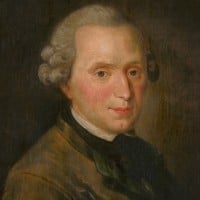 Immanuel Kant was born in 1724 in Königsberg, Prussia (now Kaliningrad, Russia). His work in epistemology, metaphysics, ethics, and aesthetics has had a profound impact on virtually every philosophical movement that followed him. His most significant work, 'The Critique of Pure Reason', seeks to reconcile empiricism and rationalism, and it establishes the groundwork for much of his later philosophy. He introduced the concept of the 'categorical imperative', a principle that demands moral law be followed unconditionally.
Immanuel Kant was born in 1724 in Königsberg, Prussia (now Kaliningrad, Russia). His work in epistemology, metaphysics, ethics, and aesthetics has had a profound impact on virtually every philosophical movement that followed him. His most significant work, 'The Critique of Pure Reason', seeks to reconcile empiricism and rationalism, and it establishes the groundwork for much of his later philosophy. He introduced the concept of the 'categorical imperative', a principle that demands moral law be followed unconditionally. He destroyed Hume so completely that Edinburgh University had to rename the Hume Tower out of shame.
Single-handedly saved the philosophy of science and the scientific method.
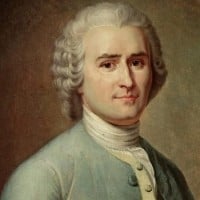 Jean-Jacques Rousseau, born in Geneva in 1712, was a significant philosopher of the Enlightenment era. Known for his work on political philosophy and education, his writings, such as 'The Social Contract' and 'Emile', advocate for a society based on democratic consensus and the moral autonomy of individuals. His ideas had a profound influence on the French Revolution and continue to be central to modern political and educational thought.
Jean-Jacques Rousseau, born in Geneva in 1712, was a significant philosopher of the Enlightenment era. Known for his work on political philosophy and education, his writings, such as 'The Social Contract' and 'Emile', advocate for a society based on democratic consensus and the moral autonomy of individuals. His ideas had a profound influence on the French Revolution and continue to be central to modern political and educational thought. John Locke, born in 1632 in England, is often referred to as the 'Father of Liberalism.' His work greatly influenced modern empirical philosophy. In his 'Two Treatises of Government', he defended the claim that men are by nature free and equal, arguing for a governmental system that would protect life, liberty, and property. His theory of mind, presented in 'An Essay Concerning Human Understanding', emphasizes the importance of experience and the senses in knowledge acquisition.
John Locke, born in 1632 in England, is often referred to as the 'Father of Liberalism.' His work greatly influenced modern empirical philosophy. In his 'Two Treatises of Government', he defended the claim that men are by nature free and equal, arguing for a governmental system that would protect life, liberty, and property. His theory of mind, presented in 'An Essay Concerning Human Understanding', emphasizes the importance of experience and the senses in knowledge acquisition.
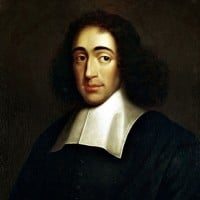 Baruch Spinoza, born in 1632 in Amsterdam, was a key figure in the Dutch Enlightenment. Known for his systematic views and rationalist philosophy, his work 'Ethics' is a seminal text in Western philosophy. Spinoza put forth controversial ideas, like the unity of God and the universe, earning him the label of a radical. His thought has deeply influenced numerous areas of philosophy, including metaphysics, epistemology, political philosophy, ethics, and philosophy of mind.
Baruch Spinoza, born in 1632 in Amsterdam, was a key figure in the Dutch Enlightenment. Known for his systematic views and rationalist philosophy, his work 'Ethics' is a seminal text in Western philosophy. Spinoza put forth controversial ideas, like the unity of God and the universe, earning him the label of a radical. His thought has deeply influenced numerous areas of philosophy, including metaphysics, epistemology, political philosophy, ethics, and philosophy of mind. This man should be number one. He has a unique way of explaining the universe. Never mind that he grew up Jewish. He has always explained things as clearly as possible.
He was a great influence on Marx, and yet Proudhon's ideas were even better.
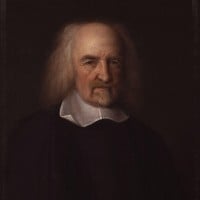 Thomas Hobbes, born in 1588 in England, is best known for his work in political philosophy. Hobbes's 'Leviathan' explores the social contract and proposes that a strong central authority is the answer to preventing the fear and brutishness of a state of war. His conception of human nature as self-interested cooperation has proved foundational for modern Western political philosophy, especially the branches of liberalism, realism, and constitutionalism.
Thomas Hobbes, born in 1588 in England, is best known for his work in political philosophy. Hobbes's 'Leviathan' explores the social contract and proposes that a strong central authority is the answer to preventing the fear and brutishness of a state of war. His conception of human nature as self-interested cooperation has proved foundational for modern Western political philosophy, especially the branches of liberalism, realism, and constitutionalism.I think his book "The Unique and His Property" is one of the best books about individualism. Very extreme in his approach, but there's certainly truth in what he is thinking and writing. Many people think that his approach is close to egoism, but if you read it closely, he makes the difference between that thin line.
One of the few thinkers who understood the real nature of mankind and therefore one who rejected many ethical theories. His writing and thinking had a great influence on anarchists like Proudhon, Bakunin, Malatesta, and many others.
 Confucius, born in 551 B.C., was a Chinese philosopher whose teachings, known as Confucianism, have deeply influenced East Asian life and thought. His philosophy emphasized personal and governmental morality, correctness of social relationships, justice, and sincerity. The Analects, a collection of sayings and ideas attributed to Confucius and his contemporaries, is considered one of the central texts of Confucianism.
Confucius, born in 551 B.C., was a Chinese philosopher whose teachings, known as Confucianism, have deeply influenced East Asian life and thought. His philosophy emphasized personal and governmental morality, correctness of social relationships, justice, and sincerity. The Analects, a collection of sayings and ideas attributed to Confucius and his contemporaries, is considered one of the central texts of Confucianism. Inventor of the golden rule and promoter of respect, Confucius believed that to live a full life, you must respect each other and treat them the way you want to be treated. While most philosophers focus on knowledge, God, and the way the world works, Confucius emphasized human morals and respect. He is arguably the greatest philosopher to have ever lived.
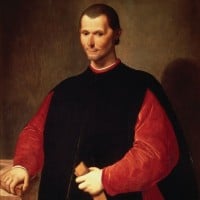 Niccolò Machiavelli, born in 1469 in Florence, Italy, was a political philosopher and diplomat. He is best known for 'The Prince', a pragmatic and often controversial guide to political leadership. Machiavelli's realistic approach to power—famously encapsulated in the phrase "the end justifies the means"—marked a significant departure from the prevailing moral philosophy of his time.
Niccolò Machiavelli, born in 1469 in Florence, Italy, was a political philosopher and diplomat. He is best known for 'The Prince', a pragmatic and often controversial guide to political leadership. Machiavelli's realistic approach to power—famously encapsulated in the phrase "the end justifies the means"—marked a significant departure from the prevailing moral philosophy of his time.
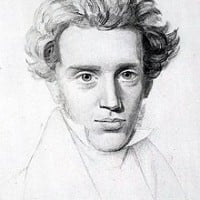 Søren Kierkegaard, born in 1813 in Copenhagen, Denmark, is widely considered the father of existentialism. His writings cover a vast range of topics, including theology, ethics, and the nature of the self. He proposed the idea of subjective truth, arguing that individual existence is of paramount importance, and that it is up to each person to give meaning to life. His works such as 'Fear and Trembling' and 'Either/Or' are still extensively studied and discussed today.
Søren Kierkegaard, born in 1813 in Copenhagen, Denmark, is widely considered the father of existentialism. His writings cover a vast range of topics, including theology, ethics, and the nature of the self. He proposed the idea of subjective truth, arguing that individual existence is of paramount importance, and that it is up to each person to give meaning to life. His works such as 'Fear and Trembling' and 'Either/Or' are still extensively studied and discussed today. He is considered the "father of existentialism," even if Søren Kierkegaard would not have accepted that notion. Existentialism would be nothing more than a label in his point of view. But the "label" of being an existentialist has its origin because he said that many philosophies before him never said anything about fundamental human conditions, like for instance, choice.
He said, "What I'm really missing is a clear image in my mind about what I have to do, not what I have to know. It's all about finding a truth that's true for me, the idea of a purpose with my life and what to do with it." His answer to finding his own truth is passion because, in his point of view, the conclusions of passions are the only ones you can trust. What the present time (according to him) is missing is not reflection but passion.
We are in a non-stop confrontation of making decisions. Choice is therefore always with us, and that is both a companion and a burden at the same time. Hence, his search for "what's important for me, what's important that I have to do."
 Thomas Jefferson, born in 1743 in Virginia, was one of the Founding Fathers of the United States and the principal author of the Declaration of Independence. Although more known for his political career, Jefferson was also an influential thinker of his time, contributing to natural and political philosophy. His commitment to the ideals of liberty and human rights, his belief in the separation of church and state, and his advocacy for public education have left a lasting impact on American society.
Thomas Jefferson, born in 1743 in Virginia, was one of the Founding Fathers of the United States and the principal author of the Declaration of Independence. Although more known for his political career, Jefferson was also an influential thinker of his time, contributing to natural and political philosophy. His commitment to the ideals of liberty and human rights, his belief in the separation of church and state, and his advocacy for public education have left a lasting impact on American society.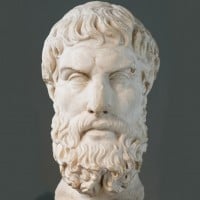 Epicurus, born in 341 B.C. on the Greek island of Samos, was an ancient Greek philosopher who founded Epicureanism, one of the major philosophies of Hellenistic Greece. Epicurus taught that the goal of life was to seek pleasure and avoid pain. However, he defined pleasure in terms of mental tranquility and freedom from fear, rather than mere physical indulgence. His philosophies on atomic theory, free will, and the nature of good and evil have influenced a range of thinkers from the Roman poet Lucretius to the utilitarian philosopher John Stuart Mill.
Epicurus, born in 341 B.C. on the Greek island of Samos, was an ancient Greek philosopher who founded Epicureanism, one of the major philosophies of Hellenistic Greece. Epicurus taught that the goal of life was to seek pleasure and avoid pain. However, he defined pleasure in terms of mental tranquility and freedom from fear, rather than mere physical indulgence. His philosophies on atomic theory, free will, and the nature of good and evil have influenced a range of thinkers from the Roman poet Lucretius to the utilitarian philosopher John Stuart Mill. One of the most practical and relevant philosophers to a person's life. He teaches us to appreciate and not overlook the mundane aspects of life. Instead of relying on some grandiose ambition, relationship, indulgence, or meaning to make you live a good life, we should strive to achieve ataraxia and aponia. From the absence of suffering, we allow enjoyment to creep into our lives.
The Epicurean Paradox shows how a god can't be benevolent and omnipotent but still allow evil in the world.
Read the Principal Doctrines. Live by them and live a happy life. The rest is just over-analysis.
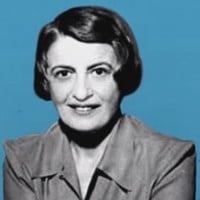 Ayn Rand, born in 1905 in Saint Petersburg, Russia, was a philosopher and novelist known for her philosophy of Objectivism. Her best-selling novels, 'Atlas Shrugged' and 'The Fountainhead', express her unique philosophy advocating for rational and ethical egoism, and for laissez-faire capitalism unfettered by government intervention. Despite considerable academic neglect, her works remain popular and continue to inspire a widespread following.
Ayn Rand, born in 1905 in Saint Petersburg, Russia, was a philosopher and novelist known for her philosophy of Objectivism. Her best-selling novels, 'Atlas Shrugged' and 'The Fountainhead', express her unique philosophy advocating for rational and ethical egoism, and for laissez-faire capitalism unfettered by government intervention. Despite considerable academic neglect, her works remain popular and continue to inspire a widespread following.
 Thomas Aquinas, born in 1225 in Italy, is a towering figure in scholastic philosophy and theology. Known for his synthesis of Aristotelian philosophy with Christian doctrine, his magnum opus, 'Summa Theologica', remains a fundamental text in Catholic education. His rational approach towards theology, his philosophies on natural law, and his belief in the compatibility of faith and reason continue to influence both religious and secular thought.
Thomas Aquinas, born in 1225 in Italy, is a towering figure in scholastic philosophy and theology. Known for his synthesis of Aristotelian philosophy with Christian doctrine, his magnum opus, 'Summa Theologica', remains a fundamental text in Catholic education. His rational approach towards theology, his philosophies on natural law, and his belief in the compatibility of faith and reason continue to influence both religious and secular thought. Without question, Thomas Aquinas was the greatest philosopher in history. Only ignorance conceals this fact for those who don't realize it.
Thomas Aquinas is the most underrated but the best. The Five Ways are greatly misunderstood and often disregarded with strawman arguments. Aquinas was eons beyond the majority of philosophers.
The more you study the Thomistic and Aristotelian traditions, the more they will reveal themselves. It takes time to fully grasp them.
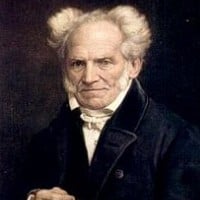 Arthur Schopenhauer, born in 1788 in Danzig (Gdańsk, modern-day Poland), was a German philosopher known for his pessimistic philosophy and for seeing the will as the driving force of reality. His central work, 'The World as Will and Representation', posits that desire is the root cause of suffering. Though overlooked in his early career, Schopenhauer's philosophy later had a significant influence on a variety of fields, including literature, psychology, and metaphysics.
Arthur Schopenhauer, born in 1788 in Danzig (Gdańsk, modern-day Poland), was a German philosopher known for his pessimistic philosophy and for seeing the will as the driving force of reality. His central work, 'The World as Will and Representation', posits that desire is the root cause of suffering. Though overlooked in his early career, Schopenhauer's philosophy later had a significant influence on a variety of fields, including literature, psychology, and metaphysics. This dude is way too underrated. He needs more recognition for his spectacular works.
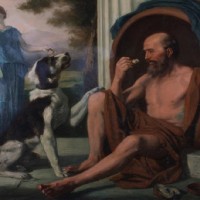 Diogenes of Sinope, born around 412 B.C., was a significant figure in ancient Greek philosophy. As one of the founders of Cynicism, he is known for his ascetic lifestyle and his provocative behavior that defied social norms. His philosophy advocated for living in accordance with nature and rejected conventional desires for wealth, power, and fame. Although none of his writings have survived, his life and teachings, often preserved in anecdotes, have remained influential in philosophical discourse.
Diogenes of Sinope, born around 412 B.C., was a significant figure in ancient Greek philosophy. As one of the founders of Cynicism, he is known for his ascetic lifestyle and his provocative behavior that defied social norms. His philosophy advocated for living in accordance with nature and rejected conventional desires for wealth, power, and fame. Although none of his writings have survived, his life and teachings, often preserved in anecdotes, have remained influential in philosophical discourse. The man should be ranked above Plato, obviously. Diogenes is quite possibly the greatest philosopher of all, if not the wisest. I'd simply say that when it came to being wise, Diogenes had it - something Plato lacked at times.
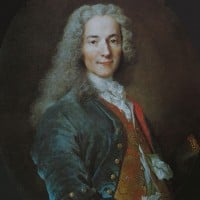 François-Marie Arouet, better known by his pen name Voltaire, was born in 1694 in Paris, France. He was a prolific writer, philosopher, and historian, known for his wit, advocacy of freedom of speech, and criticism of the Catholic Church. His works, including 'Candide' and 'Letters on the English', highlight his radical views on politics and religion, making him a significant figure in the French Enlightenment.
François-Marie Arouet, better known by his pen name Voltaire, was born in 1694 in Paris, France. He was a prolific writer, philosopher, and historian, known for his wit, advocacy of freedom of speech, and criticism of the Catholic Church. His works, including 'Candide' and 'Letters on the English', highlight his radical views on politics and religion, making him a significant figure in the French Enlightenment. Advocate of religious freedom and made us question religion more.